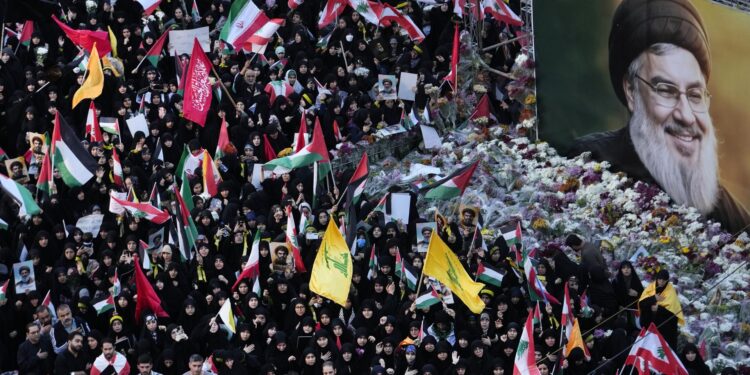The Implications of Iran’s Missile Launcher Supply to Russia: A Shift in Regional Security Dynamics
Recent reports suggest that Iran is poised to supply Russia with short-range missile launchers, a move that could dramatically reshape the security landscape in the region. This potential arms transaction marks a important escalation in military collaboration between Tehran and Moscow, both of which are currently facing intense international scrutiny and sanctions. As global geopolitical dynamics evolve, analysts believe this partnership may not only bolster Russia’s military capabilities amid its ongoing conflict with Ukraine but also enhance Iran’s influence across the Middle East. The consequences of this alliance prompt critical inquiries about shifts in power balances within the region and how global leaders might react.
Concerns Regarding Military Collaboration Between Iran and Russia
The prospect of Iran supplying missile launchers to Russia has raised alarms among regional experts about its implications for security throughout the Middle East. This strategic partnership, characterized by shared military assets, aims to strengthen Russian forces during ongoing conflicts. By providing such advanced technology, Iran underscores its commitment to becoming a key ally while possibly escalating its own military activities.
Experts are now evaluating what this collaboration could entail moving forward. Key considerations include:
- Increased Aggression: Enhanced missile capabilities may lead both nations toward more aggressive postures.
- Regional Instability: Neighboring countries might feel compelled to upgrade their defense systems as a countermeasure.
- Energized Proxy Conflicts: The transfer of military technology could intensify existing proxy wars across the region.
Nations throughout the Middle East are closely monitoring these developments, recognizing that changes in military power can significantly alter current alliances and rivalries. As Iranian-Russian ties deepen militarily, increased volatility may emerge within geopolitical frameworks leading to heightened tensions and potential conflicts across the area.
Analyzing Strategic Implications of Missile Launcher Transfers
The expected transfer of short-range missile launchers from Iran to Russia carries profound strategic implications for both regional stability and international relations. This action enhances Russian combat capabilities amidst ongoing confrontations—particularly crucial given Ukraine’s urgent need for advanced weaponry during wartime conditions. In this context, supplying these launchers could escalate tensions while demonstrating Tehran and Moscow’s united front against Western influence globally.
This arms transfer also serves as an indicator for other nations regarding aspirations toward bolstering their own military deterrence capabilities domestically. Potential outcomes include an emerging arms race as neighboring countries feel pressured to modernize their arsenals; several critical factors warrant close observation:
- Tighter Military Cohesion: Strengthening ties between Iran and Russia will likely foster closer operational collaboration.
- Affect on Regional Arms Dynamics: Changes will reverberate through neighboring states’ defense strategies.
- Diplomatic Repercussions: Possible backlash or sanctions from Western governments against both nations involved in this cooperation.
International Strategies for Addressing Defense Cooperation
The news surrounding Iran’s plans to supply missile launchers necessitates an urgent response from the international community. It is essential that diplomatic pressure be exerted on both Tehran and Moscow—encouraging them to reconsider their burgeoning alliance’s broader implications on global peace efforts. Utilizing existing sanctions or implementing new measures targeting key sectors supporting their defense initiatives can effectively convey serious repercussions associated with such cooperation.
Moreover,a coordinated approach with regional allies is vital; ensuring unified actions can enhance effectiveness when addressing these developments.
Additionally,intelligence sharing among concerned nations becomes crucial; pooling insights allows better anticipation of threats posed by enhanced Iranian support towards Russian forces.
Finally,developing defensive strategies that account for potential fallout from this arms transfer should be prioritized—this includes investing resources into advanced missile defense systems while reinforcing alliances within affected regions as deterrents against any aggressive maneuvers stemming from newfound partnerships.
Establishing robust contingency plans empowers involved nations enabling preemptive responses aimed at maintaining stability across volatile areas.
Conclusion: Vigilance Over Evolving Military Alliances
The anticipated transfer of short-range missile launchers from Iran directly into Russian hands signifies a pivotal moment concerning evolving patterns surrounding bilateral defense cooperation between these two countries amidst rising global tensions today . Such collaborations carry extensive implications—not just limited solely towards stability issues faced throughout parts comprising Middle Eastern territories—but extending further into overarching frameworks governing international security overall . Analysts remain vigilant monitoring developments closely evaluating possible consequences arising out such exchanges impacting various geopolitical conflicts unfolding presently around us all .As events progress , timely updates alongside thorough analyses shall continue being provided ensuring awareness remains high amongst audiences interested following along closely.
















